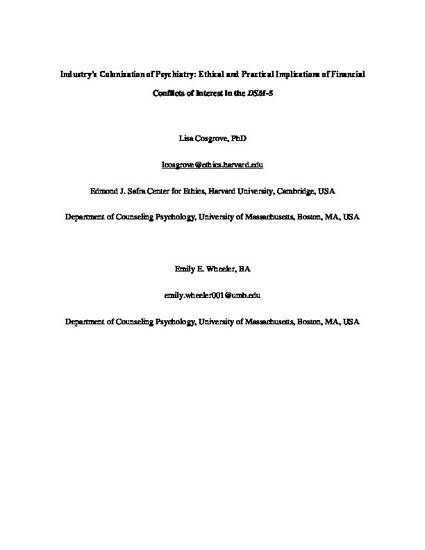
The revision of the Diagnostic and Statistical Manual of Mental Disorders (DSM), scheduled for publication in May 2013 by the American Psychiatric Association (APA), has created a firestorm of controversy because of questions about undue industry influence. Specifically, concerns have been raised about financial conflicts of interest between DSM-5 panel members and the pharmaceutical industry. The authors argue that current approaches to the management of these relationships, particularly transparency of them, are insufficient solutions to the problem of industry’s capture of organized psychiatry. The conceptual framework of institutional corruption is used to understand psychiatry’s dependence on the pharmaceutical industry and to identify the epistemic assumptions that ground the DSM’s biopsychiatric discourse. APA’s rationale for including Premenstrual Dysphoric Disorder (PMDD) in the DSM-5 as a Mood Disorder is reviewed and discussed.

Post-print, pre-published version of article published in Feminism & Psychology, Volume 23, Issue 1, February 2013, Pages 93-106: http://dx.doi.org/10.1177/0959353512467972.